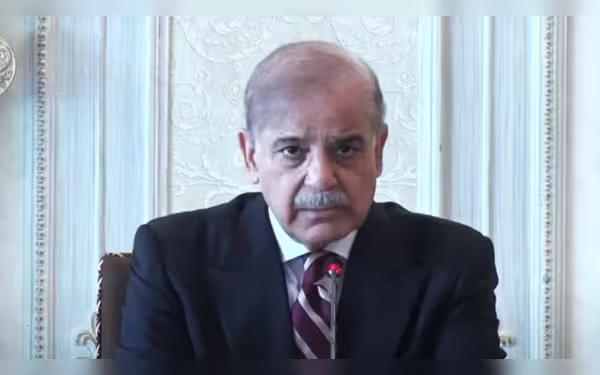Saturday, November 16, 2024 08:51 PM
Government Vows to Prevent Disruptions Ahead of SCO Conference in Islamabad
- Prime Minister vows to avoid 2014 sit-in disruptions.
- SCO conference scheduled for October 15-16 in Islamabad.
- PTI protests focus on judiciary independence and Imran Khan's release.
 Image Credits: thenews
Image Credits: thenewsAhead of the SCO conference, the government pledges to prevent disruptions, emphasizing national stability and economic growth.
As the Shanghai Cooperation Organisation (SCO) conference approaches, scheduled for October 15 and 16 in Islamabad, the political climate in Pakistan is heating up. Prime Minister Shehbaz Sharif has made a firm commitment to prevent any disruptions similar to the infamous 2014 sit-in led by Imran Khan's Pakistan Tehreek-e-Insaf (PTI). This promise comes in light of the coalition government's concerns about the potential impact of ongoing protests on the country's economy and international relations.
The 2014 sit-in, which lasted for 126 days, is often cited by the ruling Pakistan Muslim League-Nawaz (PML-N) as a significant factor that harmed Pakistan's economic standing. The cancellation of a visit by Chinese President Xi Jinping during that period is frequently referenced as a major diplomatic setback. With top officials from China, Russia, India, and other nations expected to attend the upcoming summit, the government is keen to ensure that the event proceeds without any disturbances.
During a recent cabinet meeting, Prime Minister Shehbaz Sharif expressed his determination, stating, "I will not allow the repeat of 2014 [...] the conspiracy that took place. We will not allow this, we will not tolerate this at all. This is my promise to the nation." His remarks underline the government's resolve to maintain order and security in the capital, especially given the sensitive nature of the SCO summit.
The PTI, on the other hand, claims that its protests are aimed at advocating for the "independence of the judiciary" and the release of its founder, Imran Khan. Party leaders have indicated that they will continue their demonstrations until they receive direction from Khan himself. In response, Prime Minister Shehbaz criticized the PTI for fostering chaos and division within the country, asserting that the party failed to fulfill its promises regarding economic recovery and anti-corruption measures during its time in power.
Reflecting on the past, the Prime Minister recalled the detrimental effects of the 2014 sit-in, stating, "The Government of Pakistan tried its best, but they [PTI] refused to postpone their sit-in. I was shocked to know about the delay of the Chinese president's visit." This historical context serves as a reminder of the potential consequences of political unrest on international relations.
In light of recent security concerns, particularly following a deadly attack that claimed the lives of two Chinese nationals in Karachi, the Prime Minister assured the Chinese ambassador of comprehensive security measures for the upcoming summit. He emphasized the importance of safeguarding foreign nationals in Pakistan, especially in the wake of such tragic incidents.
As the political landscape continues to evolve, it is crucial for all stakeholders to prioritize national stability and economic growth. The upcoming SCO conference presents an opportunity for Pakistan to strengthen its ties with key regional players. However, this can only be achieved if the government and opposition can find common ground and work towards a peaceful resolution of their differences. The nation’s future hinges on unity and collaboration, especially in these challenging times.













